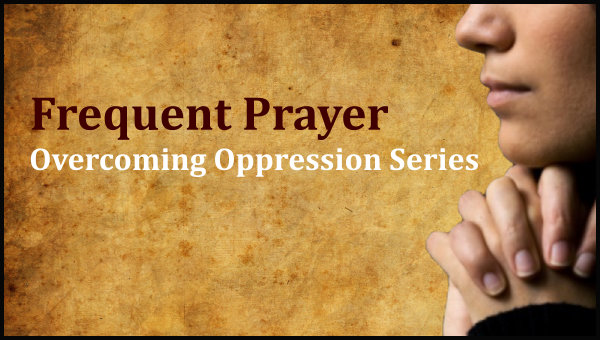By Tyson Thorne

Most all Christians have some form of prayer life, even if it is only at dinner or bedtime. Some have memorized prayers for certain occasions, especially those who belong to more liturgical denominations. While regularly practiced prayers have their place, the child of God is commanded to “Always rejoice, constantly pray, in everything give thanks. For this is God’s will for you in Christ Jesus” (1 Thessalonians 5.16-.18). What does this mean, to constantly pray?
Some teach this is to have an “attitude of prayer” all through the day, but I never found that explanation enlightening. To understand Paul’s teaching I had to step back and review everything I knew about prayer. Obviously even the ancients had jobs and people to attend to, and formal prayer at all times wasn’t something anyone could reasonably accomplish. That may be why modern scholars suggest this “attitude” of prayer. The only way I could make sense of it is to be “prepared for prayer” at all times, and to pray frequently throughout the day.
The problem is that at the end of every short “thank you” or “God help me” I always felt as if the conversation were over. The more I reviewed my prayers I can to understand that formula most Christians use at the end of their prayer, “In Jesus name I pray, amen”, had become associated in my mind with the end of a conversation. It’s like hanging up the phone, the conversation is over and you put the person out of your mind until you call them again. The solution for me was to not sign off, to not pray the closing formula. It kept the line open for me to respond to God from time to time throughout the day.
Each person will have to find a way to keep God in the forefront of their minds and to develop a habit of checking in with God periodically to thank him, praise him, ask of him, and to confess sin. Last year’s series on the Five Forms of Prayer may be useful for you to review (click here to download a free publication of these blogs). Developing this openness with God not only builds connection with the Creator but it makes prayer a more natural part of our lives. Few things are as important during times of oppression as being prepared for prayer.
In the course of any battle, one of the first things a unit will try to do is establish communication with base and, if possible, disrupt the opposing army’s communications. The last thing a platoon wants is the enemy calling in reinforcements. For this reason unclean spirits will first attempt to sever your prayer life. There are many ways to accomplish this, through convincing the believer that prayer “doesn’t work”, to make them feel so guilty they do not want to approach God, or to simply increase the pressure in a person’s life to distract them from prayer.
For each person there is a mechanism, it could be depression, fear, anxiety or even blessings (if life is going well, many don’t feel compelled to pray). We cannot forget that we are not the only ones in the battle, either. Attacks may come indirectly, through others. A family member or loved one may come under direct oppression in an attempt to distract us from doing what we are called to do. Remember everyone in your life when you pray, and ask for their protection as well.
|
|
